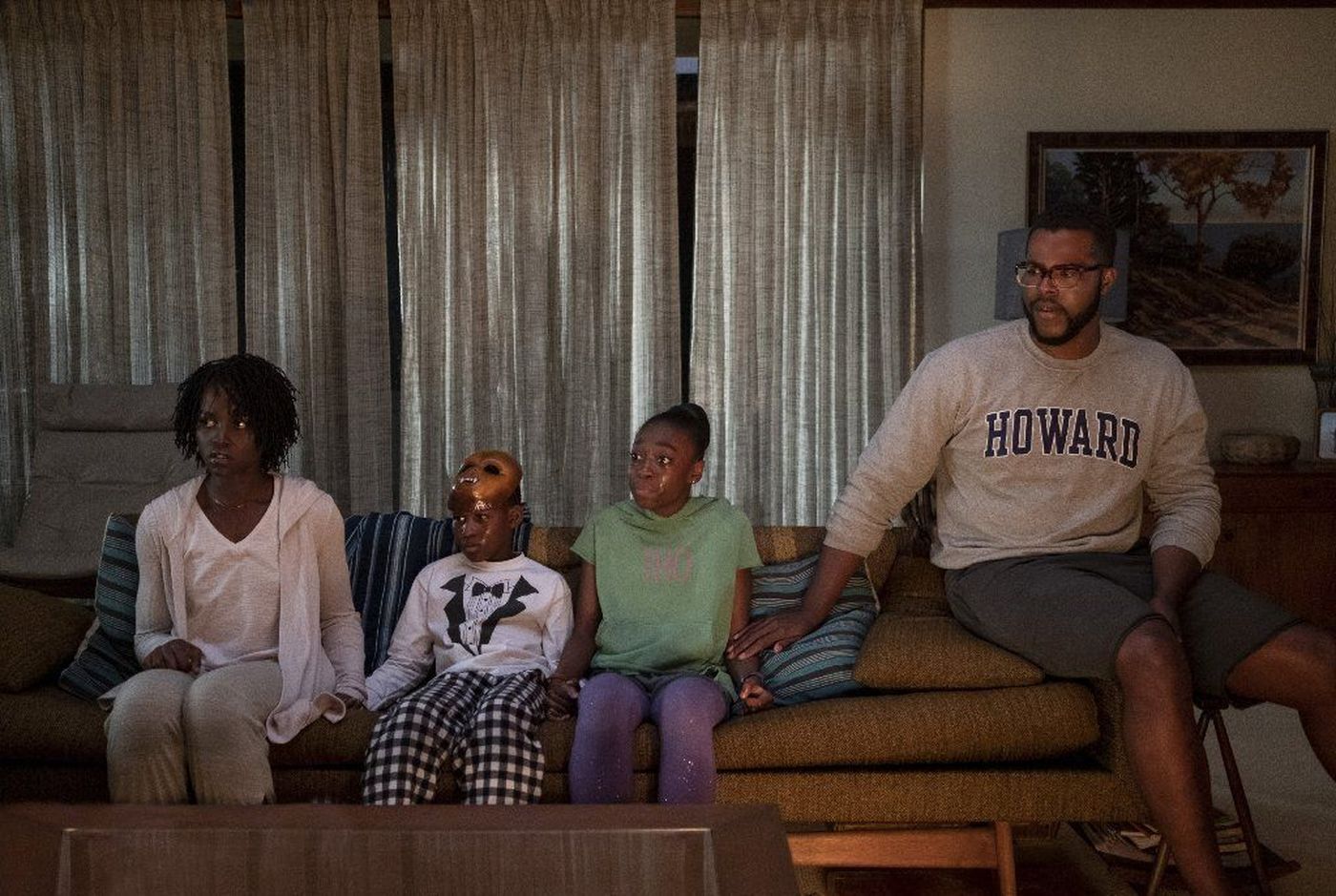Jordan Peele’s ‘Us’ Is Not-so-Secretly About Class
Credit to Author: Noel Ransome| Date: Mon, 25 Mar 2019 20:38:56 +0000
Disclaimer: light spoilers ahead.
An hour after I first viewed it—and days after thinking back on it—I’m still reflecting on a particular scene from Us: Lupita Nyong’o sitting in front of an exact double of herself, black skin shaped by bloodshot tears. She says nothing to her twin at first, but her expression says more—she’s angry, and deranged after her whisper, “I’ve waited for this day.” She’s eager to confront the classier look-alike who’s ignored her for so long. She tells her story, and it’s here when I begin to feel the turmoil she’s gone through. I’ve felt the sentiment of being ignored before.
It’s the most unforgettable image in this movie if you’re willing to filter it for what it is: a resentful version of you who epitomizes a difference of fate brought on by circumstance—an impoverished upbringing or series of disadvantages, take your pick. For a horror film fixated on dualities and killer doubles, the most consistent thing about Jordan Peele’s Us is the ease with which it navigates between our own man-made horrors—the effects of classism and marginalization—and a fiction that can entertain without those issues in mind. In the case of Peele, he’s always acknowledged these terrors without obvious labels.
“This is why I was drawn to The Stepford Wives, and movies like Jaws and The Shining appeal to me,” he said in a recent NPR interview. “When you have something beautiful and sort of perfect, that’s where the true horror lives.”
For a black man like myself, nothing can be more perfect than a black family at a beachfront cottage. In the case of Us, it’s a whole domestic pipe dream. You’ve got Father Gabe Wilson (Winston Duke), the upper-middle-class master of dad jokes. Adelaide (Lupita Nyong’o), the happily married woman with two kids. Son Jason (Evan Alex), the firebrand who loves the word “anus,” and daughter Zora (Shahadi Joseph), the family critic and cynic.
This is their life, and it’s joyful, silly and struggle-less—far and away from the four identical figures at the end of their driveway one night. Led by Adelaide’s double, wearing matching jumpsuits, grasping at scissors, and standing, twisting and convulsing with every movement, they quickly cut into the facade. Their presence by virtue of sharing the same appearance, distorts that idealism with fact, “we are Americans.”

In this way, watching Us can be like the experience of a George Romero flick—some parts Funny Games, Invasion of the Body Snatchers, and Night of the Living Dead. These movies operated under pitch-perfect horror tropes—an invading enemy disrupting the status society’s status quo. In the case of Us, it uses that genre DNA, substituting zombies and aliens with the Tethered—an underground race of lookalikes spiritually linked to those above. Yes, it’s a lot to take in, but the choice in how to interpret all that comes down to what this film is about; an examination rooted in self-diagnosis. “Us.” What did you (we) see in this movie?
For myself, I saw my upbringing. As I’ve written before, I grew up poor with a single mother in a rough neighbourhood. For a long while we had ideas about escape, but access to easy credit forced my mother into a cycle of desperation and debt. It was suffocating, and at later times, extreme. Even as a young kid, I could discern the slow zombified change she was going through; no doubt labouring for those with better privileges. It was a slow repetitive regularity that made it difficult for both of us to see beyond our situation.
In Us, the Tethered are effigies of this same situational classism. They’re trapped—mentally and physically—and ignored. While the Wilson family and others bicker on about rocking the fancier tugboat, those with the capacity to be as happy grow darker from fucked up circumstances. My mother found her own crippling prison through high interest rates, low wages, and high rent. That kind of economic trap weighs one down to the point of feeling in-human: eating the worst foods (rabbits?), experiencing the least and envying the ones we can view from below.
It’s why I can identify with the double-Adelaide pain. Given an M.Night-y twist we should all know by now—she was the young girl snatched and replaced by a Tethered—she witnessed a higher class benefiting from her labour. She went from feeling exploited to being marginalized. And when she tells her other half about her escape, “the miracle happened”—as vague it may be—it’s the same kind of miracle that the impoverished rely on for flight; a kind landlord, a forgiving loan, a better job and a display of greener pastures.
For the functions of classism and marginalization traps to work, the presence of it must never be explicitly seen or acknowledged for what it is. The powerful must do as Ronald Reagan did in Jordan Peele’s reference to the Hands Across America (1986) fund: take the credit for every victory, regardless of contradictory attitudes towards the poor. Potential horrors must be presented with a positive dualities—a pair of scissors, a black family in America, and a horror film.
The greatest meta-ruse Us performs on “us” is in the not-so-obvious political commentary it creates. Is it an ode to horror? Is it a gift from a future Hitchcock? Is it a commentary about inner demons? Was it scary?
Depending on how we answer these questions, Peele has managed to map an enemy that exists in all of “us.” The enemy of dismissive neglect to problems that persist.
Follow Noel Ransome on Twitter.
Sign up for the VICE Canada Newsletter to get the best of VICE Canada delivered to your inbox.